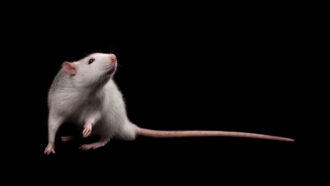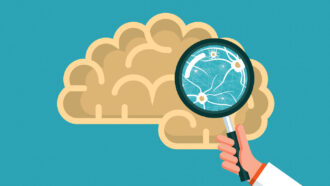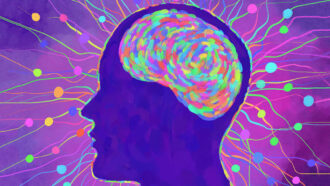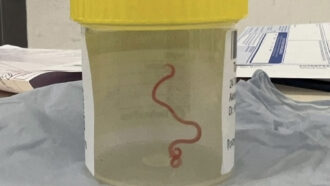Brain
-
 Brain
BrainScientists Say: Confirmation Bias
Confirmation bias is the tendency to seek out and believe information that agrees with what we already think.
-
 Health & Medicine
Health & MedicineThe teen brain is especially vulnerable to the harms of cannabis
Today’s concentrated cannabis products — with higher THC levels — may pose greater risks of addiction and psychosis than ever before.
-
 Science & Society
Science & SocietyMusic has the power to move us physically and emotionally. Here’s why
The way music impacts the brain can improve mood and overall health.
-
 Tech
TechLet’s learn about the benefits of playing video games
Too much screentime poses health risks, but research suggests playing video games can sharpen some skillsets.
-
 Animals
AnimalsLike tiny Jedis, rats can move digital objects with their brains
Rats imagined their way through a 3-D virtual world in a new study. The results hint at how brains think about places they aren’t physically in.
-
 Brain
BrainBrain scans hint at how well teens will manage pandemic stress
A study that followed hundreds of teens during the COVID-19 pandemic now suggests why some of them handled long-term stress better than others.
-
 Brain
BrainScientists Say: Deep brain stimulation
Through wires implanted in a person’s brain, this medical treatment can help treat various conditions.
-
 Humans
HumansSenses help the brain interpret our world — and our own bodies
Most people are familiar with sight, hearing, smell, taste and touch –– but there are others. Learn about them here.
-
 Brain
BrainLet’s learn about mind reading
In the future, more advanced, less bulky mind-reading equipment could raise serious privacy concerns.
-
 Science & Society
Science & SocietyThese teens are using science to make the world a better place
Finalists in the 2023 Thermo Fisher Scientific Junior Innovators Challenge are doing projects that aim to help others.
-
 Health & Medicine
Health & MedicineDoctors found a snake parasite in a woman’s brain — still alive
This worm typically infects pythons. Though this is its first known infection in humans, other types of worms also can infect the human brain.
By Meghan Rosen -
 Brain
Brain‘Lucid’ dreamers could solve mysteries about sleeping minds
People who know they’re asleep while dreaming could help study how sleeping minds create elaborate alternate realities.